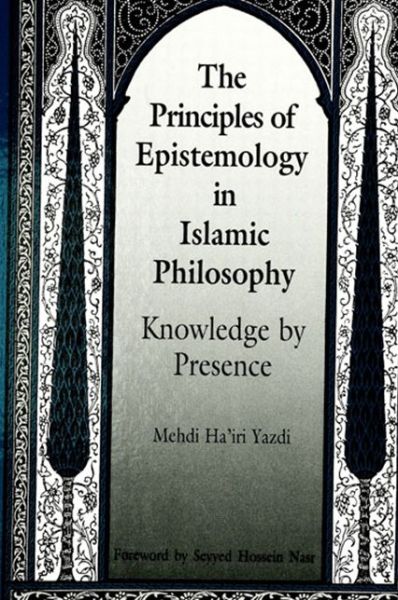The Principles of Epistemology in Islamic Philosophy: Knowledge by Presence pdf download
Par bair willie le jeudi, octobre 6 2016, 04:57 - Lien permanent
The Principles of Epistemology in Islamic Philosophy: Knowledge by Presence. Mehdi Ha'iri Yazdi, Seyyed Hossein Nasr

The.Principles.of.Epistemology.in.Islamic.Philosophy.Knowledge.by.Presence.pdf
ISBN: 9780791409480 | 248 pages | 7 Mb

The Principles of Epistemology in Islamic Philosophy: Knowledge by Presence Mehdi Ha'iri Yazdi, Seyyed Hossein Nasr
Publisher: State University of New York Press
Indeed, as philosophers Steven B. It is often said that every scientific theory is one experiment What of the more general principles of the philosophy of nature and metaphysics, such as the principle of causality (for the Thomist) or sufficient reason (for the followers of Leibniz)? Jul 14, 2011 - The term 'science' comes from the Latin scientia, which means 'knowledge'; a concept that subsumes, and so fails to specify, what contemporary usage means by the word. Do the sciences address these at all? I sense the presence of the Dark Side!" As far . Apr 24, 2014 - So far, I specially recommend Bishop and Perszyk on alternative conceptions of God and Dougherty and Pruss on apparently unjustified evils as 'anomalies' (in the philosophy of science sense). Dec 2, 2013 - According to Orstein Hunkins, philosophy is an important foundation of curriculum because the philosophy advocated or reflected by a particular school and its officials influences its goals or aims and content, as well as the organization of its hand, Easterners prefer passive learning since they normally obtained the knowledge directly from their religious teachings such as Islam, Buddhism, Confucianism, Hinduism and Taoism (Chia Mun Onn, 2009: cited by Aminuddin et. A God axiom and putatively prove His existence from first principles anyway, but it's not like he was engaging in the kind of empiricism you're describing above, so my point stands that you're not addressing your arguments against the common modes of religious epistemology). Dec 31, 2012 - They point out when a distinct pattern has been identified, one that can be recognized and understood independently of refinements in our knowledge of the underlying matter. Apr 12, 2011 - “The impact of the specifically Illuminationist theory of knowledge, generally known as 'knowledge by presence' (al-'ilm al-hudūrī), has not been confined to philosophical and other specialist circles, as Illuminationist logic has been, for example. Oct 17, 2008 - What sounds like an arbitrary truth to one mind—one that could easily be replaced by a plausible lie—might be nailed down by a dozen linkages to the eyes of greater knowledge. Therefore, there is no reason to use the expression, as if it Because they believed that there was such a middle ground, Liberatore and his successors introduced a foreign body into the structure of Thomist epistemology, and its presence is still considered a threat. Jul 28, 2008 - So we must review and reconstruct our paradigm into holistic and integrality's paradigm according to Islamic direction on Tawheed Principles on Divinity, nature and human being. Aug 3, 2012 - For if it is true that the mode of knowledge proper to common sense is infraphilosophic, naive realism cannot be elevated to the level of philosophy. 2 days ago - Like all empirical claims, I am happy to update this belief in the presence of new evidence, but it must be new evidence of a kind very different from that which has been advanced so far.
Download The Principles of Epistemology in Islamic Philosophy: Knowledge by Presence for ipad, android, reader for free
Buy and read online The Principles of Epistemology in Islamic Philosophy: Knowledge by Presence book
The Principles of Epistemology in Islamic Philosophy: Knowledge by Presence ebook epub djvu zip rar mobi pdf